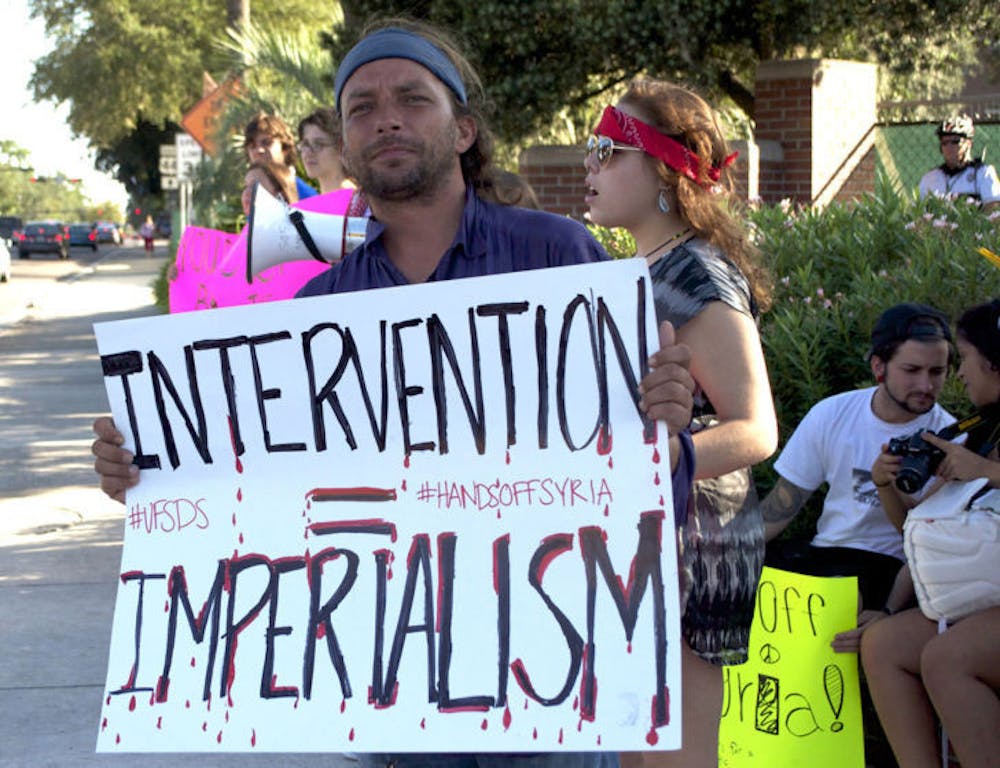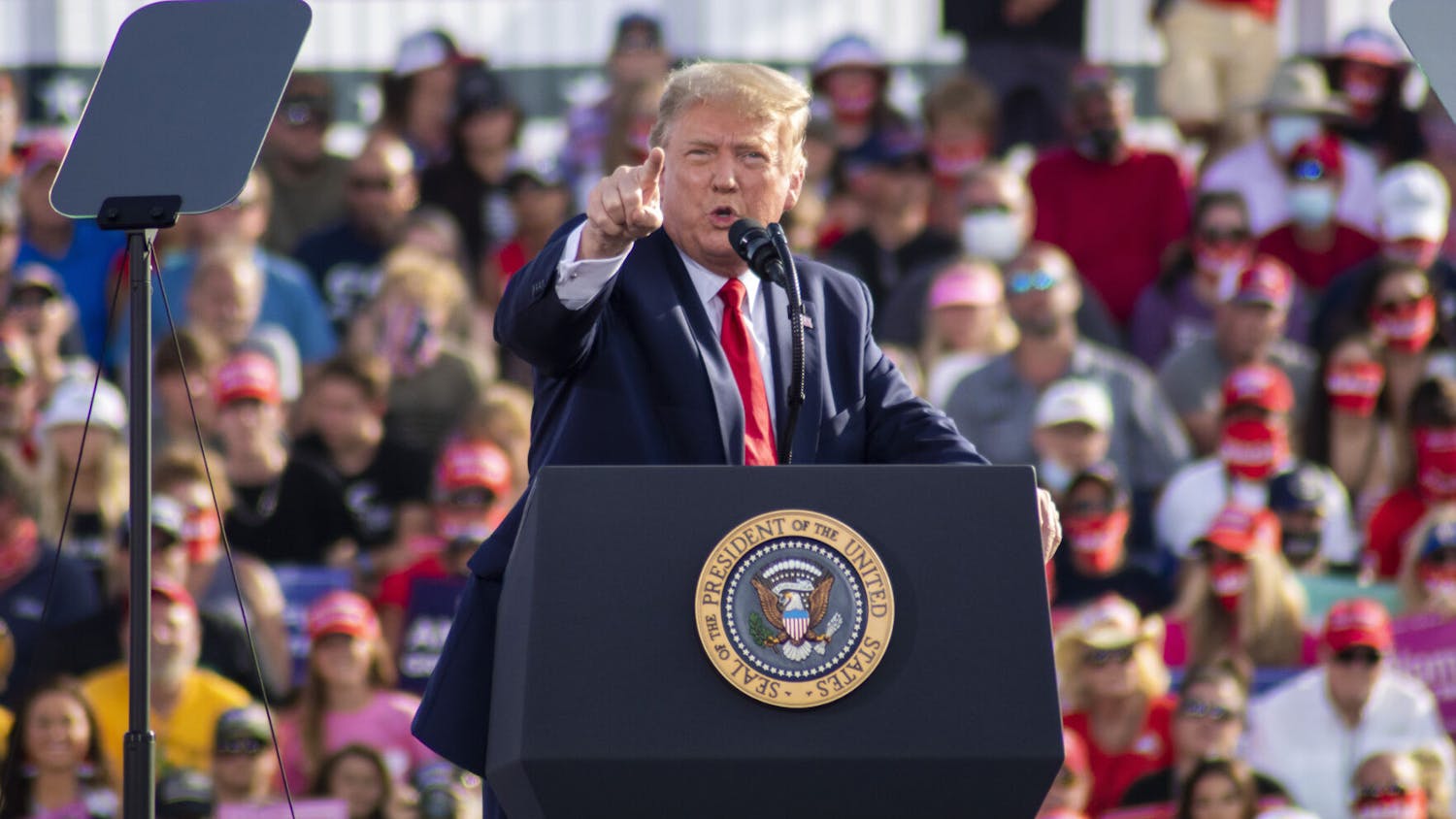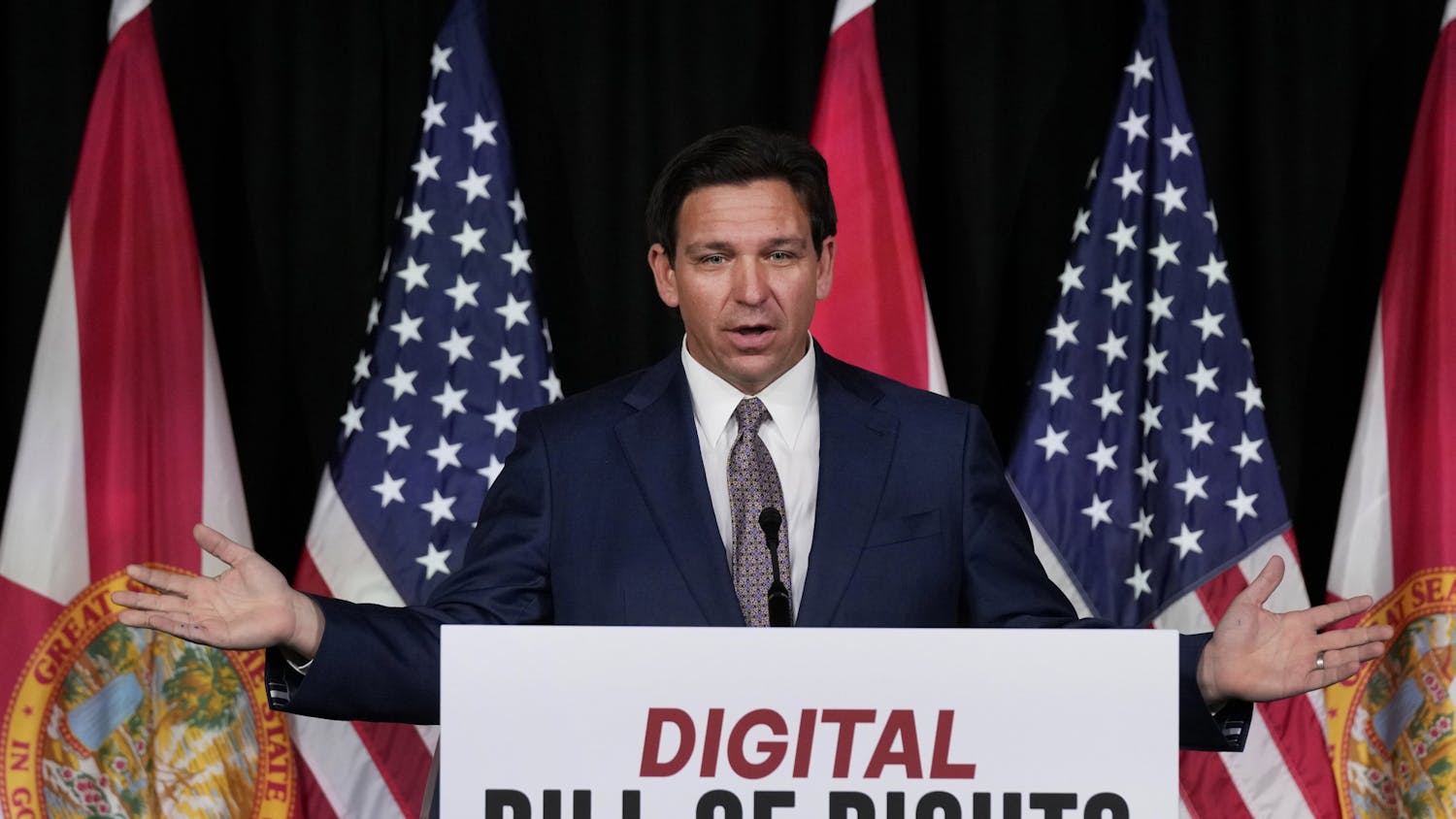Following President Barack Obama’s speech Tuesday night, which outlined a national course of action — or inaction — toward Syria, Gainesville opinions are mixed, as were President Obama’s messages, some locals said.
In his speech, Obama called for diplomacy instead of military action, but he left the option of an air strike open while confirming he wouldn’t put troops on the ground. He asked Congress to postpone a vote to use force, and instead said he is working with the United Nations to come up with resolution that would force Bashar al-Assad, Syria’s president, to give up chemical weapons.
UF associate professor of U.S. and international history Matthew Jacobs said Obama called Syria a national security threat but not an immediate one, leaving the scope of the threat ambiguous.
“There was some tension there that came out in the speech, I think,” he said.
Jacobs said an intriguing point of the speech was Obama’s “effort to deal with a range of criticism.” He compared the promises that there would be “no boots on the ground” and that the U.S.’s involvement “won’t be prolonged” with the potential impact of what Obama called “deter and degrade” — to prevent Syrian usage of nuclear weapons.
“He’s trying to walk a very fine line, which forces him into these sort of contradictory statements,” Jacobs said.
Jacobs said he thought the president did a good job laying out the moral argument for why Syria is a problem, but he said Obama left the government’s next steps unclear in the event of Congress voting “no” to his proposition.
Skye Schmelzer, a 21-year-old UF history senior and a lead organizer of Students for a Democratic Society, said Obama’s talk of an airstrike is narrow-minded. She said regardless of the timing of a U.S. airstrike, it’s in Obama’s interest to play a policing role.
Although Sameer Saboungi, a 19-year old international studies sophomore and Syrian-American, also disagreed with Obama’s speech, he said it was because he was disappointed in Obama’s inaction.
“I think the risks of inaction are greater than the risks of action,” he said. “We’re not addressing the root of the problem. Chemical weapons are a symptom of the problem.”
However, Dante Frisiello, a 20-year-old UF philosophy and political science junior, called the president’s speech “spot on.”
“It was probably the first time since he’s taken office that I’ve agreed with every word he said,” Frisiello said.
He said letting a conflict go would set a precedent, sending a message that a country can use chemical weapons against its own people without consequence.
“You can’t let that go,” Frisiello said. “For a guy who constantly gets criticized for not being tough enough, he definitely scored with this.”
A version of this story ran on page 1 on 9/11/2013 under the headline "Obama talks diplomacy, airstrike options in Syria"
UF Students for a Democratic Society protest the United States’ intervention in Syria. Obama addressed the nation Tuesday night and called for diplomacy but left options open for military action.






